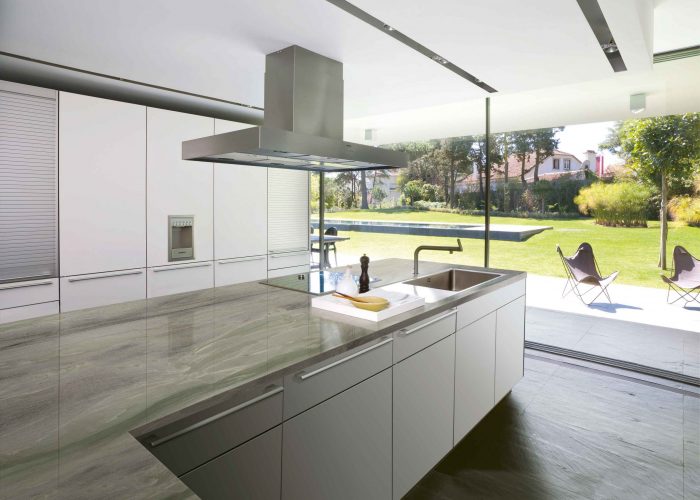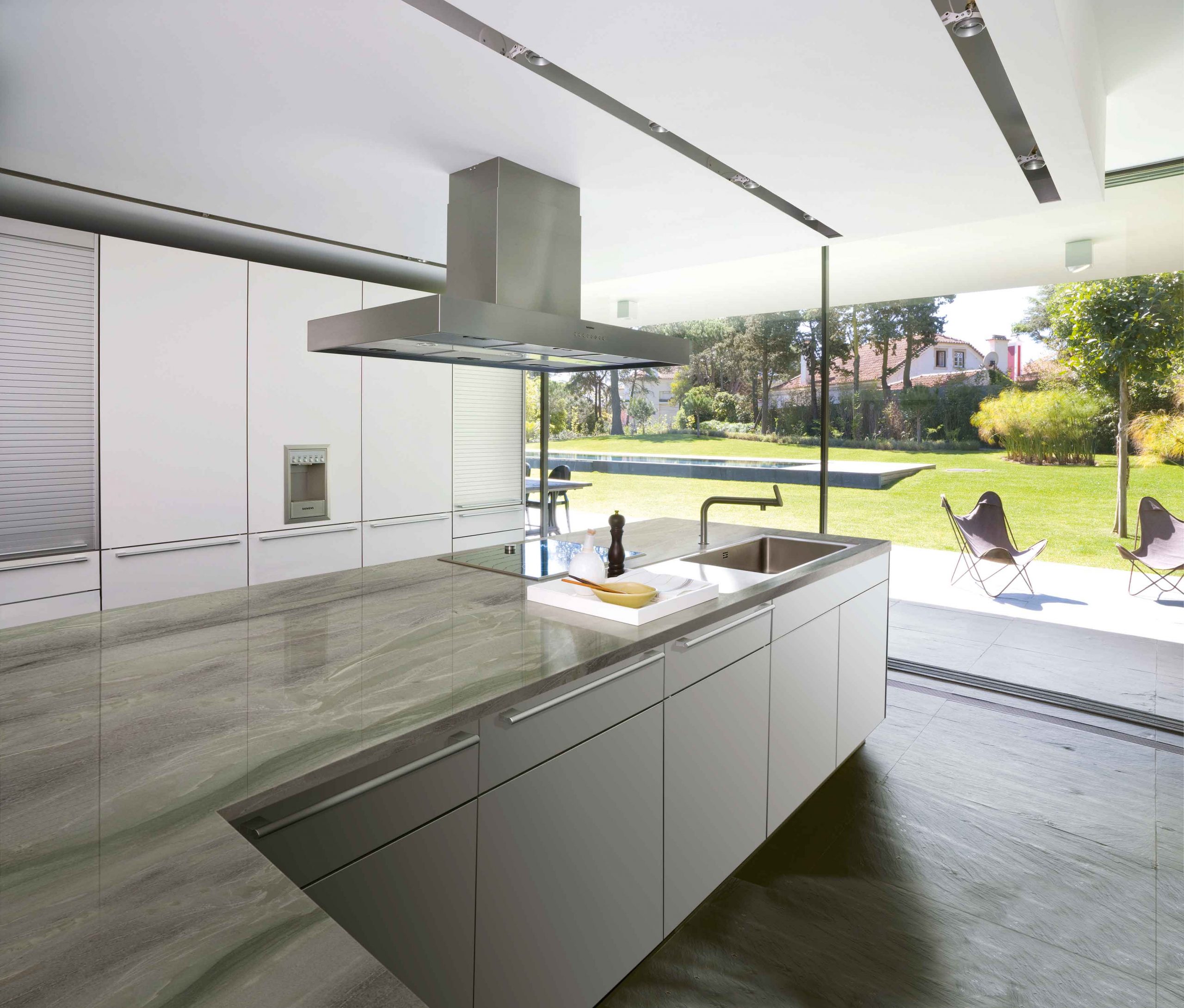Quartz or Granite Worktops: What is the difference?
Granite Worktops
Quartz or Granite Worktops: What is the difference?
Choosing a worktop for your kitchen or bathroom can be difficult. If you’re thinking of installing stone worktops, it’s likely that you will be considering granite worktops or quartz worktops.
When planning a new kitchen or bathroom, it’s important to choose the right material. This is especially true when it comes to materials such as granite and quartz because they are a long term investment for your home.
We have a huge number of customers who ask us what the differences between granite and quartz are so we have compiled this guide to help you find the best worktop for your needs.
- What are granite worktops?
- What are quartz worktops?
- Quartz vs granite worktops: how do you choose the right worktop for your home?
- Appearance
- Durability
- Seams
- Maintenance
- Cost
- Hygiene

What are granite worktops?
Granite is a quarried rock such as sandstone and marble. This means that granite worktops are made from 100% natural stone. The stone is quarried in a large block which is then cut into large slabs and polished on one side, ready for installation.
Granite is a naturally occurring material so, whilst the slabs may be a similar colour, each slab is unique in terms of the veining and colour variation within each slab. This unique look is the reason why many homeowners choose to install granite worktops in their homes.
What are quartz worktops?
Quartz is a gemstone made up of silica and oxygen. Whilst quartz worktops are similar in appearance to granite worktops, it’s important to be aware of the differences.
Granite worktops are made up of 100% natural stone. On the other hand, quartz worktops are made up of 93% crushed quartz and 7% polymer resins (which act as a binding agent).
Quartz is an extremely hard material which makes quartz worktops highly durable. As a manufactured stone, there are a huge range of colour options available when you choose a quartz worktop.
Quartz vs Granite Worktops: How do you choose the right worktop for your home?
When it comes to choosing between quartz and granite worktops, there are a number of factors, pros and cons to consider. Let’s have a look at the differences between the two materials.
Here’s a quick comparison of the difference between quartz and granite kitchen worktops before we have a look at them in more detail:
| Granite | Quartz | |
| Natural stone | 100% | 90-97% |
| Heat resistant | Yes | Yes |
| Scratch resistant | Yes | Yes |
| Stain resistant | Needs to be sealed | Yes |
| Colours available | Black, brown, white, grey | White, grey, black, cream, white sparkle, grey sparkle |
| Appearance | Natural veining and colour variations | Uniform textures and colours across slabs |
Appearance
Granite
Due to the nature of the material, granite kitchen worktops are unmatched by other worktops. Granite can add to the aesthetic appeal of your kitchen design and help to create a focal point in the room. Many customers choose granite for their island to make it stand out from the rest of the kitchen.
Available in a range of colours from black granite worktops, white granite worktops and grey granite worktops, there’s something to suit every kitchen, each with its own pattern and colour variations.
Quartz
Quartz worktops are man made which means they have the added benefit of a more even, uniform finish. There is much less variation between different worktops and within the slab itself. The resin added to the worktops is available with pigments of different colours which allows for the creation of more uniform styles and patterns within the worktop.
Quartz worktops are available with a marble effect or grain effect and sparkle worktops are also available too. The choices are endless when you opt for a quartz worktop and each and every worktop will provide a bright, glossy look for your kitchen.
Durability
Your worktops will be one of the most used parts of your kitchen so it’s important to make sure the material you choose will withstand heavy use and stay looking as good as possible.
Granite
Granite is one of the most durable worktop materials you can choose, even when compared to quartz and marble worktops. It is scratch resistant so, as long as you look after it properly, will continue to look as good as new throughout its lifetime. When cared for and maintained well, granite worktops will last for decades.
In addition, if you’re looking to sell your home in the future, granite worktops will hold their value, boost the value of your property and increase the appeal of your home in the market.
One of the biggest disadvantages of granite is that it can be prone to cracking or chipping if you drop a heavy object on it.
Quartz
Quartz surfaces offers similar durability to granite but have superior strength so it will not crack or chip as easily as granite.
However, quartz worktops can fade in UV light so, if your worktops are likely to be directly under sunlight, they may not be the best option for your kitchen.
Stain resistance
Granite
Granite is a porous material so it can absorb liquid and, lighter colours in particular, will stain. Staining can be prevented by sealing the worktop to prevent liquid from seeping in. A professional should be able to ensure it’s sealed properly so you don’t have to worry about staining your worktop.
Quartz
In contrast, quartz is a non-porous material so it will not absorb liquids and does not need sealing to prevent stains.
Heat resistance
Granite
Granite is resistant to extreme heat so you can place a hot pan directly on the worktop and it will not burn, become damaged or weaken.
Quartz
Quartz is relatively heat resistant but it is not recommended that you place hot pans directly on the work surface as it can lead to thermal shock and fracture. Make sure you have something to put under the pan if you’re going to put it on your worktop.
Seams
Granite
Due to the nature of granite and variation in its patterning and colouring, the seams can be difficult to hide when joining pieces of the worktop together. This can have an impact on the overall look of the worktops. Small joint lines can be created but it’s impossible to hide it completely.
Quartz
In comparison to marble and granite worktops, it’s much easier to hide the join in a quartz kitchen worktop. So, if you’re looking for a more seamless look for your kitchen, this may be the best option.
Maintenance
Granite
Granite worktops are low maintenance, they just need to be cleaned with a PH neutral detergent or warm soapy water. It’s important to avoid highly alkaline cleaning products as these can damage the surface of the worktop. Granite worktops are a high cost investment so ongoing maintenance and care is important to make sure they stand the test of time.
Quartz
Quartz worktops require very little maintenance to keep looking their best. They’re easy to clean but make sure you avoid aggressive cleaners to prevent damage to the surface of the worktop.
Cost
Granite
Granite kitchen worktops are available in a range of different prices. Some granite worktops are cheaper but it’s important to remember that it’s likely they won’t be of the same quality.
Due to their resistance and durability, granite worktops provide a long term solution so you can expect to pay more.
Quartz
Quartz worktops have risen in popularity which means demand has driven prices down. There isn’t much difference between the price of granite or quartz worktops so when it comes to choosing between them, neither should affect your budget too much. If your granite is not sealed, there will be a higher chance of harbouring bacteria.
Hygiene
Granite
Granite is naturally resistant to bacteria and, as long as the granite has been sealed, it will not be able to absorb or harbour any harmful bacteria.
Quartz
Quartz provides a highly hygienic surface because the highly polished surface prevents any bacteria and mould from becoming established. This is useful if you do a lot of food preparation such as rolling out pastry or kneading dough directly on the worktop.
Take a look at our full range of granite worktops and quartz worktops to find the right worktop for your kitchen or bathroom or get in touch with our expert team today for a free no-obligation quote.
